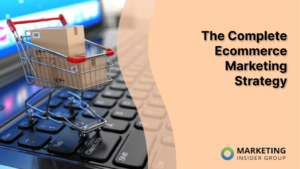Manufacturers Are Falling Right into a New Development: ‘Greenhushing’

[ad_1]
Make means for a brand new time period in your sustainability lexicon: greenhushing, a follow stemming from manufacturers’ worry of showing to greenwash.
As individuals turn out to be extra conscious of, and anxious about, local weather change, they’re more and more holding manufacturers accountable for the way their operations are impacting the planet—and whether or not they’re upholding the claims made of their advertising.
Moderately than incorporating sustainability claims or local weather commitments into their advertising messages, some manufacturers are refraining from any sort of inexperienced communication for worry of being referred to as out. They might or might not nonetheless be doing that sustainability work internally, however both means, it gained’t be mirrored of their exterior communications.
That’s made some manufacturers cautious of claiming something in any respect relating to sustainability, which some are referring to as greenhushing.
What’s greenhushing?
Almost 1 / 4 of 1,200 sustainability executives surveyed in 2022 by local weather consultancy South Pole reported no plans to publicize established local weather objectives. That’s regardless of a rise within the variety of corporations with science-based targets, and report authors advised that the shortage of communication plans could also be resulting from upticks in scrutiny from the media and NGOs.
The basis of the difficulty comes from a gray space—intentional or unintentional—that may emerge between commitments and achievements. However the fears are well-founded.
Corporations are “being requested to decide to and display larger ranges of ambition,” Aron Cramer, president and CEO of sustainable enterprise group BSR, stated. On the identical time, “they’ll both get social media backlash or precise authorized issues if their message will get too far out forward of their efficiency.”
The place did the time period come from?
The time period was first coined by model strategist Jerry Stifelman and author Sami Grover in 2008 in a weblog submit for Treehugger.com.
It discovered its means into academia in 2017 however solely just lately made its far more into the mainstream. A handful of sustainability-focused creators on TikTok started discussing the time period final yr as organizations just like the World Financial Discussion board and sustainability-focused enterprise publications like Eco-Enterprise started monitoring its impression on model communications.
Corporations are going to greenhush for some time, however hit the ceiling fairly quickly of their capability to remodel.
Alex Paine, associate at company Lippincott
Nonetheless, it has but to finish its entrance into the advertising lexicon, maybe as a result of the phenomenon resists publicity by nature—particularly relating to official model communications.
So is greenhushing an enchancment on greenwashing?
Whereas it could possibly be mistaken for a optimistic results of the backlash towards greenwashing, specialists fear that it may decelerate industry-specific momentum for motion on local weather.
“I don’t assume the world is aware of what it desires proper now. We would like ambition, however we don’t need corporations to say they’re doing issues that they’re not,” Cramer stated. “It’s genuinely a tough dilemma.”
Extra corporations are making science-based plans to succeed in web zero emissions. However except these plans are being communicated throughout the {industry}, there’s no stress for {industry} friends to comply with swimsuit. Whereas staying quiet may be higher than exaggerating progress towards local weather objectives, neither greenwashing or greenhushing helps the sort of motion essential to curb world warming.
If a model waits to be good on all dimensions to start out contributing, effectively, it might take an extended, very long time.
Fabrice Beaulieu, chief advertising and sustainability officer, Reckitt
In the long run, it’s vital for manufacturers to work together with individuals on problems with sustainability, defined Alex Paine, associate at company Lippincott and director of the company’s sustainability follow.
With out demonstrating peoples’ connection to sustainability points and communications, it’s more durable for manufacturers to maneuver from cost-saving sustainability measures—typically the primary steps of a model’s local weather journey—to the tougher and expensive selections, he defined. At that time, buyers have to know that individuals care.
“Corporations are going to greenhush for some time however hit the ceiling fairly quickly of their capability to remodel,” Paine predicted.
However when local weather objectives with a goal date in 2030 begin knocking on the door, issues must shift—as a result of these are arduous targets to fulfill with no shopper demand-related rationale. At that time, “the dialog with clients goes to need to occur as a result of that’s the one means that individuals can truly construct the enterprise case for it to work,” he stated.
What ought to entrepreneurs be doing about it?
To keep away from the paralysis referred to as greenhushing and the unfavourable penalties of greenwashing, specialists advise manufacturers to be trustworthy and clear concerning the distinction between their future objectives and previous achievements.
“There’s completely actual greenwashing on the market,” Cramer stated. “Corporations within the power sector that spend huge quantities of cash on TV promoting round potential improvements on renewable power whereas their capital expenditures are going in direction of fossil fuels—that’s deceptive.”
The bottom line is transparency. Manufacturers have to be trustworthy concerning the work that’s being accomplished, how lengthy it’s going to take and what challenges they’re dealing with—however they don’t want to attend till every part is ideal earlier than speaking about that work.
“We acknowledge that we’re not good,” Fabrice Beaulieu, chief advertising and sustainability officer for shopper manufacturers firm Reckitt, proprietor of labels like Airborne, Durex, End, Lysol and Mucinex, instructed Adweek.
Every of Reckitt’s manufacturers goals to align its identification with a sustainability initiative impressed by one of many United Nations’ Sustainable Growth Objectives.
For its dishwashing model End, for instance, Reckitt created a advertising marketing campaign urging individuals to skip rinsing dishes earlier than they go into the dishwasher—aligning with SDG six, “clear water and sanitation for all.” With a greater system, Beaulieu defined, that further rinse wasn’t essential—and it saved water.
“I would love our merchandise to have much less plastic and extra recycled plastic and we’re working very arduous to get there—we’re not shying away from from from that reality,” Beaulieu defined. “On the identical time, we’re relentless [in working toward the] most sustainable merchandise and operations and packages which have significant impression.”
“If a model waits to be good on all dimensions to start out contributing, effectively, it might take an extended, very long time,” Beaulieu stated. “So we favor looking for areas that are significant.”
[ad_2]
Source_link










